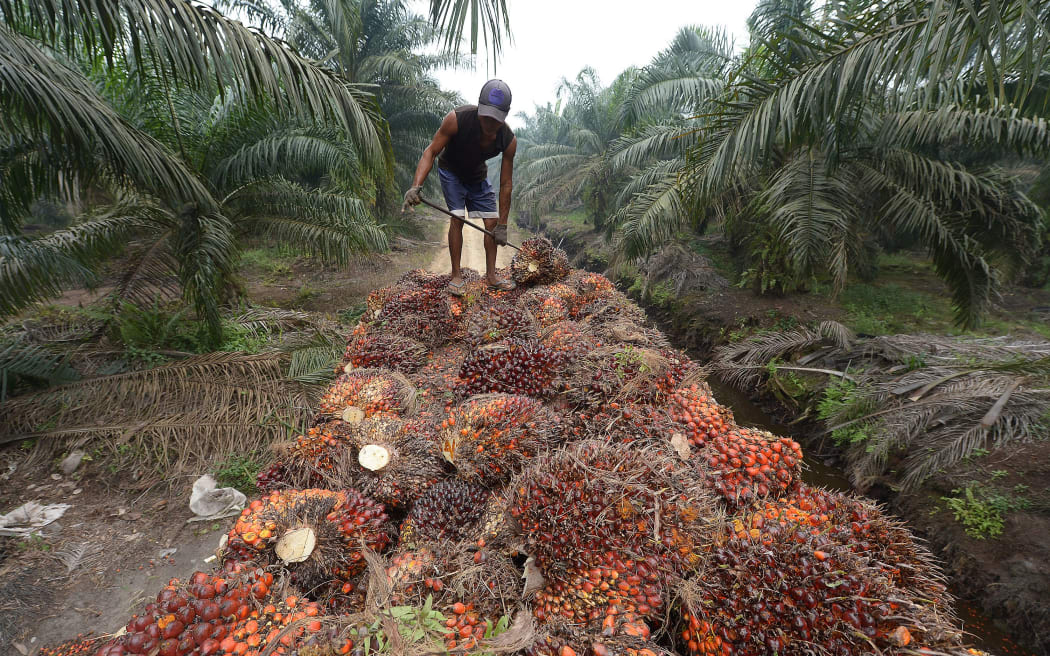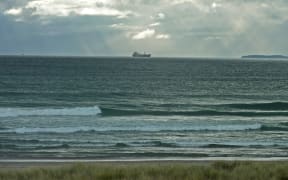The Ministry for Primary Industries is still investigating a shipment of palm kernel anchored off Tauranga, it says, and has again said it hopes to make a decision as to what happens next within days.
The MV Molat carrying 23,000 tonnes of palm kernel extract from Malaysia has been sitting offshore since 6 September when it was barred from docking because it hadn't come from an approved facility.

A worker at a palm plantation area in Indonesia's Sumatra island. Palm kernel expeller (PKE) is a by-product of the palm oil industry. Photo: AFP
Palm kernel expeller (PKE), a by-product of the palm oil industry, is used as a supplementary animal feed, mostly by the dairy industry. The product has been linked to the destruction of rain forests and loss of biodiversity in South East Asia.
MPI border clearance services director Steve Gilbert said the ministry was still carrying out inquiries.
"MPI is currently in contact with Malaysian officials to see whether the facility met New Zealand's biosecurity requirements at the time the vessel was loaded.
"MPI and the importer have been exploring heat treatment options to date. One of the issues we have looking at is the availability of a suitable facility to carry out this treatment."
"MPI and the importer have been exploring heat treatment options to date. One of the issues we have looking at is the availability of a suitable facility to carry out this treatment."
Mr Gilbert said the ship was not being fined for breaching import health standards, but in order for an imported consignment to receive biosecurity clearance and be allowed to enter New Zealand it had to comply with the relevant import health standard.
Green Party biosecurity spokesperson Steffan Browning said it seemed the ship had been fumigated but the palm kernel product had not been treated properly and should be sent back.
"It doesn't comply and if biosecurity in New Zealand is going to be maintained at a high level we shouldn't be mucking around with shipments that don't comply.
There is a level of risk of foot and mouth disease which would be crippling to New Zealand, he said.
"MPI seem to be running around at the moment trying to find facilities to heat treat the PKE, however that would mean that truck loads of untreated PKE will be going through New Zealand countryside or even at the port area and that's not appropriate.
Earlier this month officials said a decision was due within days.


